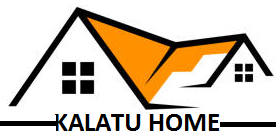As we all know, GST is a goods and services tax and was launched in 2017 in India. It includes CGST, SGST and IGST. The rates of GST at the present time are 0%, 5%,12%,18% and 20% for regular taxpayers.
Homebuyers in India have to pay GST on flat purchase, which is under construction. In real estate, GST is also applicable to buying developable plots. In 2023, those who are buying flats under construction will have to pay GST in India. This is not similar in the case of completed flats. You don’t have to pay GST for ready-to-move properties, which have received a certificate from the authority.
The tax on affordable housing was 8% with ITC and 12% with ITC on affordable housing till March 2019. But after March 2019 the tax on affordable housing is changed to 1% without ITC and 5% without ITC on non-affordable housing. Taxes before GST implementation were very different. Before introducing a single tax in the form of GST, a variety of state and central taxes were imposed on buildings at different stages of a construction circle.
Impact of GST on Real Estate
These taxes increased the price of project development and no credit was available against these taxes for the builders. The cost incurred on the builder at first and then transferred to the property buyers. For these numbers of taxes, the builders could manipulate the buyers to pay more for the purchase. It was very difficult for a buyer to find all the taxes like VAT, Central Tax, Entry Tax, and all the other taxes to pay the exact amount to builders, so they had to pay as much as the builder asked for. But the scenario had changed after the start of GST.
Launched on 1st July 2017, GST can be regarded as one of the biggest post-independence tax reforms in India. This system changed different fields like real estate. GST subsumed different indirect taxes and offered a uniform tax for the taxpayers. After the launch of GST, various changes have been made regarding the real estate tax, where real estate is taxed under the GST regime.
GST on flat purchase subsumed both Central and State taxes which are- Excise duty, Customs duty, Special additional duty of Customs, Service Tax, Central Sales Tax, central surcharge and cess on supply of goods and services, State value added tax, entertainment tax, luxury tax, State excise duty, state surcharge, and cess on supply of goods and services, taxes on an advertisement, purchase tax, taxes on lotteries, gambling, and betting.
According to the govt. determined definition, affordable housing is housing units, worth up to 45 lakhs, and are more than that, are regarded as unaffordable housing. The tax for affordable housing is changed to 1% GST without ITC. ITC is an input tax credit under GST. A builder has to pay tax before completing the building on the purchase of goods and services. Under the GST regime, the input tax will be returned to the builder while paying the output tax.
Conclusion
There are many things which come along while trying to change the dream of buying a flat into reality. When someone wants to purchase real estate, GST on flat purchases in 2023 can be checked and paid easily while buying the flat. The task gets easier for you if you buy a completed apartment. With GST, the burdens of paying loads of taxes in different sectors decreased and it totally changed the scenario of real estate after the implementation of GST.

